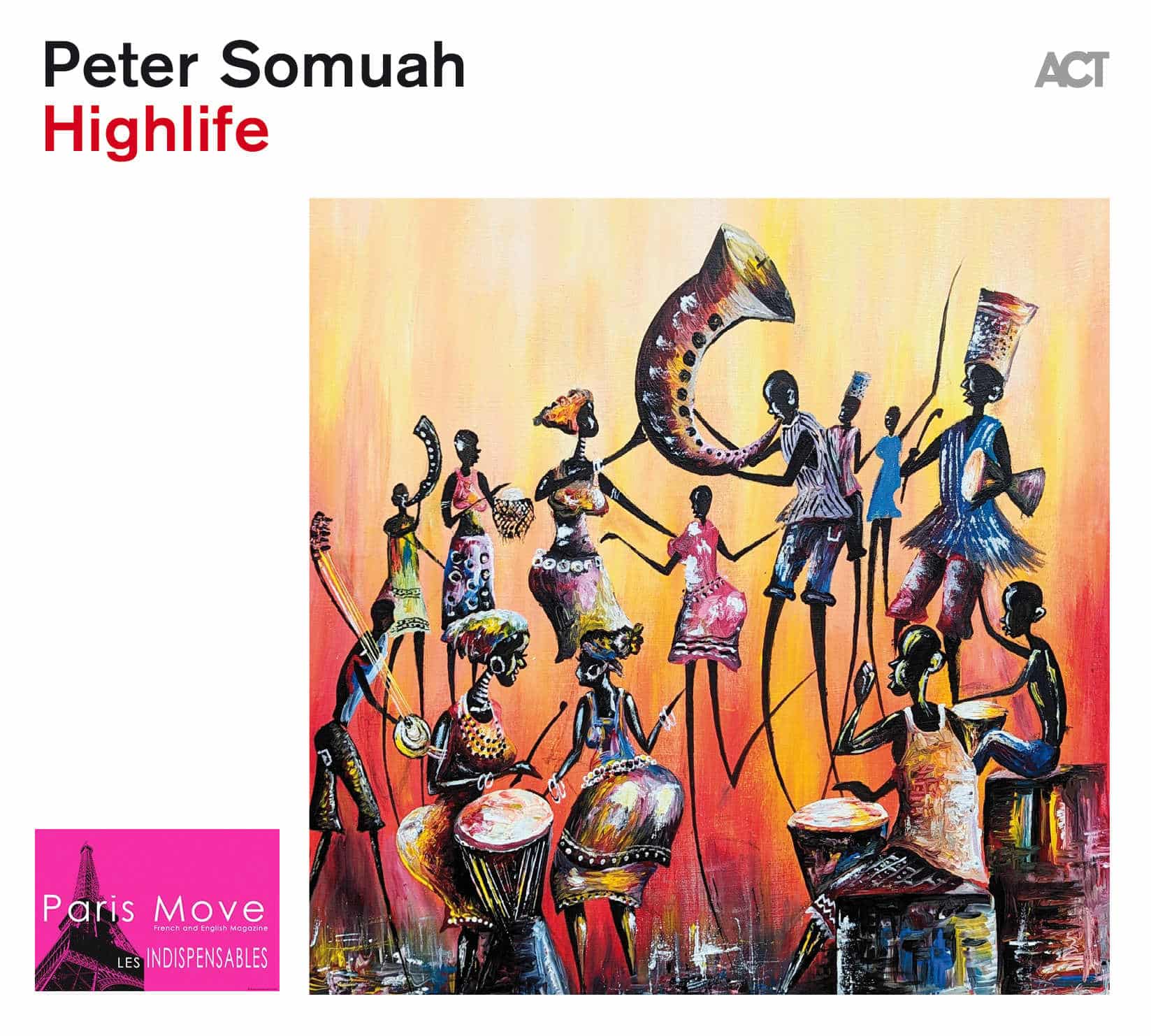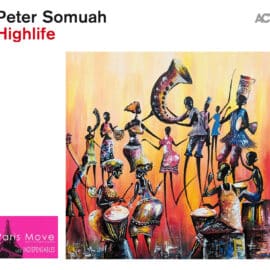| Afro Jazz |

It is always a true delight to immerse oneself in an album by this seasoned traveler, who weaves together the musical threads of cultures from around the world to create a work that is as intellectually rich as it is musically captivating. The musicians accompanying him are Dutch, though as Somuah himself explains, “My companions didn’t grow up in Ghana, but that doesn’t matter. Their deep passion for highlife and afrobeat, and the emotional connection they’ve developed with this music, are what truly count.”
Peter Somuah’s approach here is deliberately more “roots,” akin to an authentic blues style. The technique had to align with this vision, so the album was recorded in a small backyard studio in Berlin-Neukölln, using vintage analog equipment. This decision brings the listener into direct contact with the earthy, authentic sound reminiscent of the historic highlife recordings of the 1950s and ’60s. “I wanted to revive that very particular sound—the warmth, the roughness, the overwhelming joy,” Somuah explains. He then flew to Ghana with the instrumental tracks and visited some of the legends of traditional highlife, such as Pat Thomas and Gyedu Blay-Ambolley. “Growing up, I heard their songs on the radio all the time. Back then, I never imagined that one day I’d be sitting in their living rooms, recording them for my album.”
It’s as if Kraftwerk had merged with the African spirit of Peter Somuah, and we are launched into the first track of this album, which leans more towards World Music than jazz. But it hardly matters—the result is captivating! This album begins by telling us a story. In “The Rhythm,” Somuah explores the legacy of highlife pioneer Koo Nimo in Kumasi, who recounts the origins of the genre. British colonists once employed Ghanaian bands, instructing them to play waltzes, samba, and Western popular music, which was reserved for the elite in British clubs and casinos—hence the name “highlife.” Most locals could only listen from outside. “Later,” Somuah notes, “the musicians developed their own blend, combining Western instruments with older Ghanaian styles like palm wine music.” They infused lively highlife guitar riffs and syncopated rhythmic patterns, including the renowned clave.
As I mentioned earlier, this album is no accident. The artist’s intention is clear: to share his culture with those eager to learn. A world traveler at heart, Somuah has graced stages across the globe, trumpet in hand, captivating audiences everywhere he goes. Having traversed the world, he now resides in Amsterdam. His first album on the ACT label, *Letter to The Universe*, was widely acclaimed by the press and remains available here. What interests Somuah is not only the music but also the narrative traditions behind it: “Generally, this music tells stories of daily life—love, friendship, family—combined with a certain moral.” Somuah himself sings on “Mental Slavery,” following in the footsteps of Fela Kuti, another long-time idol and inspiration. “I talk about the lingering legacy of colonial times: many Ghanaians are still mentally enslaved, seeing themselves as inferior. They don’t dare to stand tall and showcase their skills.” Somuah’s album *Highlife* seems like an antidote to this mindset. Listening to this album feels like a journey through Peter Somuah’s homeland. Here, only his trumpet lines carry the essence of jazz, while the rest of the album consists of magnificent African music that many will appreciate. Whether it’s considered jazz or not, this album is extraordinary enough to be counted among our “Essential” albums.
Thierry De Clemensat
USA correspondent – Paris-Move and ABS magazine
Editor in chief Bayou Blue Radio, Bayou Blue News
PARIS-MOVE, October 13th 2024
Follow PARIS-MOVE on X
::::::::::::::::::::::
